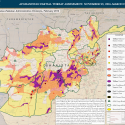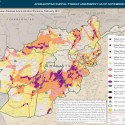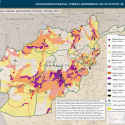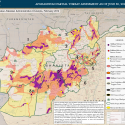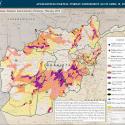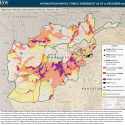Russia in Review: Russian Offensive in Ukraine Unlikely, but Russian Disinformation Operation Pressures Kyiv To Make Concessions
Mar 18, 2021 - Mason ClarkThe Kremlin launched a disinformation campaign against Ukraine in early March that could support renewed Russian offensive conventional operations in 2021, but Russia is unlikely to launch offensive operations in the coming weeks. Russian proxies in eastern Ukraine deployed to full combat readiness on March 16. Despite that potential indicator of a possible operation, the Russian military is not postured to support an imminent offensive. The Kremlin’s disinformation campaign may be intended to pressure Ukraine into engaging in negotiations on unfavorable terms or to set conditions for a Russian escalation in late spring 2021 or both. ISW will continue to assess indicators of a potential Russian escalation and monitor the Kremlin’s ongoing disinformation campaign.


